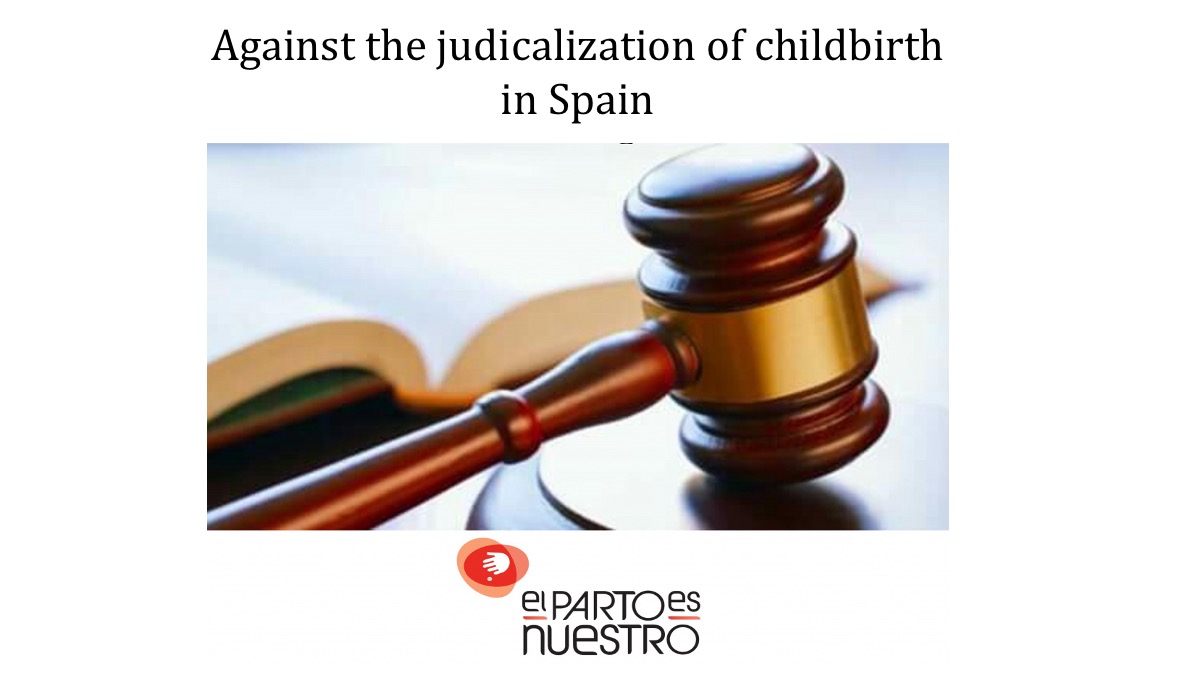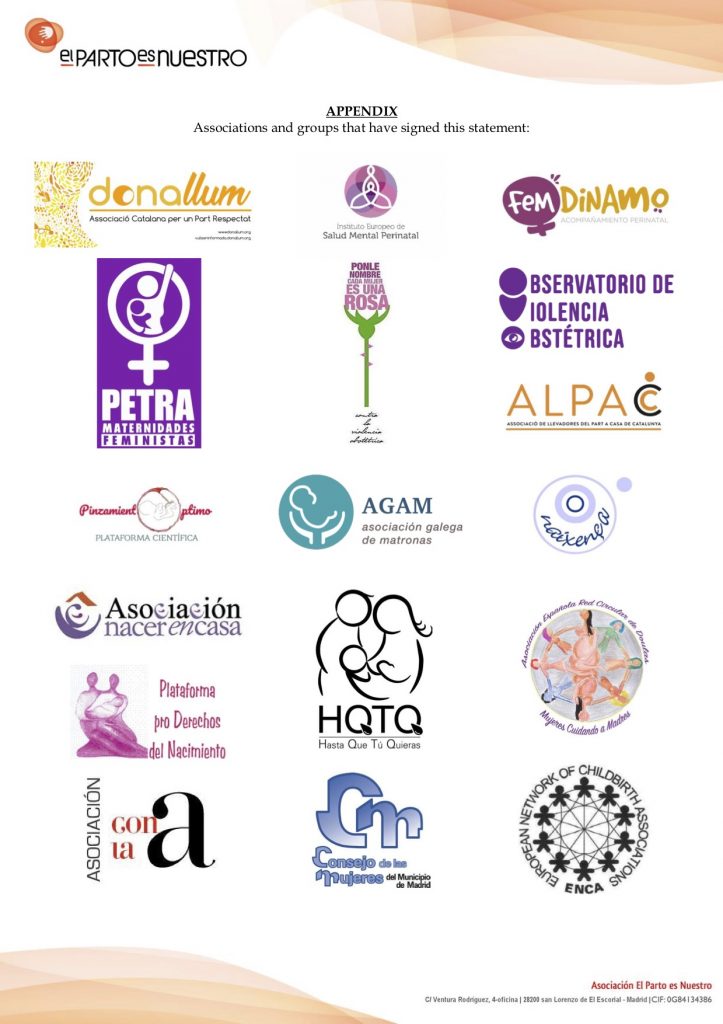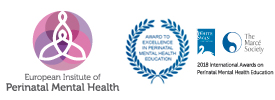Surviving postpartum psychosis

Official statement addressed to leading Spanish
institutions in the field of health and equality
Madrid, February 17th, 2020
From the association El Parto es Nuestro and other associations working for the improvement of maternity care, we want to warn of the current dangers of judicialization and criminalisation of childbirth in Spain. This judicalisation has led to several cases of forced inductions of labour and caesarean sections in the last year.
With this statement, the signatory associations EXPOSE that:
- Since 2019 more and more women are threatened, with court orders, to be subject to medical procedures against their will under the provision of maternity care in hospitals. As a result, several women have been forced to have inductions of labour and caesarean sections against their will, which we understand to be a violation of the fundamental rights of these women.
- The request for a court order by those responsible for their care is made under coercion, unilaterally and without allowing women to exercise their right to autonomy as recipients of health care.
- As a result, the Law 41/2002 of November 14th 2002, i.e. the fundamental law regulating patients’ autonomy and their rights and obligations with regards to information and clinical documentation, is being systematically and flagrantly violated.
- From the cases where childbirth has been judicialised, we have first-hand knowledge of women suffering threats, coercion, humiliation, violation of their rights, appropriation of their bodies, verbal and physical violence, pressure, stress and depression due to the mistreatment received during the final stage of their pregnancies.
- The World Health Organization, on its statement about the prevention and elimination of disrespect and abuse during facility-based childbirth, strongly condemns “outright physical abuse, profound humiliation and verbal abuse, coercive or unconsented medical procedures, […] and failure to get fully informed consent […]” and denounces that “many women experience disrespectful and abusive treatment during childbirth in facilities worldwide. Such treatment not only violates the rights of women to respectful care, but can also threaten their rights to life, health, bodily integrity, and freedom from discrimination.”
- The United Nations, through the Special Rapporteur on violence against women, its causes and consequences, Dubravka Šimonović, has recognised in its report of July 2019 the existence of obstetric violence in reproductive health services, even defining as torture the subjection of women to specific interventions without their informed consent.
- The deprivation of women’s autonomy and capacity to decide about their bodies and reproductive health constitutes obstetric violence.
- The European Court of Human Rights has acknowledged that the rights to privacy life include the right of women to make decisions concerning childbirth and their reproductive health.
- The Council of Europe, in its resolution 2306 (2019) on obstetric and gynaecological violence, states that “Obstetrical and gynaecological violence is a form of violence that has long been hidden and is still too often ignored. In the privacy of medical consultation or childbirth, women are victims of practices that are violent or that can be perceived as such. These include inappropriate or non- consensual acts.
”Therefore, we URGE relevant institutions to:
- Grant us space to present the most notorious cases of 2019 and 2020, to transmit the seriousness of the facts we are denouncing here.
- Act according to the recommendations of the World Health Organization, the Strategy for Normal Childbirth, the Law on Patient’s Autonomy and Human Rights.
- Get proactively involved with us in the eradication of obstetric violence and the stigmatisation of women’s attitudes in their decision-making process.
- Hold accountable those hospitals and health professionals responsible for and involved in grave violations of women’s rights.
- Remind healthcare professionals that women are sovereign over their own bodies. Also, women themselves have the most vested interest in their baby being born healthy. Every intervention implies risks and that decision corresponds merely to the woman.
- Take the example of other European countries regarding the level of respect for women and their choices during birth, given that, in those countries, medical interventions are noticeably lower than in Spain, yet they have better perinatal outcomes.
We remain at your disposal to schedule all relevant meetings and coordinate necessary joint actions, and advise you of the main ways of responding to this statement:
Further information:
Website: www.elpartoesnuestro.es
e-mail: junta@elpartoesnuestro.es
Signing entities:

Related posts







